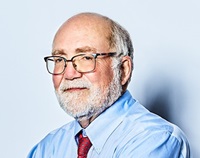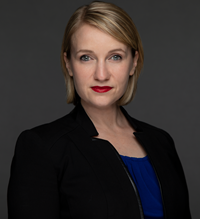This webinar was recorded live on March 30, 2023.
It is available on demand through March 31, 2025.
Register above for access.
Description
Oncology patients incur frequent venipunctures as tests are run to monitor disease status and treatment effectiveness through therapy protocols. Obtaining a quality blood specimen from these patients can be difficult and painful. The goal should be to collect a high-quality specimen on the first attempt so that the patient does not need to be redrawn.
In this webinar, Dr. Robert Christenson describes a recent study conducted at the Stoler Pavilion, an outpatient area of the Greenebaum Cancer Center at the University of Maryland Medical Center, showing how improved patient experience & sample quality was achieved by introducing a novel blood-collection system. He explains the challenges and current workarounds when obtaining blood specimens from patients with difficult venous access, outlines the study parameters, and highlights its results and conclusions.
TARGET AUDIENCE
This activity is designed for physicians, lab supervisors, lab directors (and/or assistant directors), lab managers (supervisory and/or non-supervisory), medical technologists, point-of-care coordinators, pathologists, toxicologists, fellows, residents, in-training individuals, and other laboratory professionals overseeing/conducting within this topic.
Learning Objectives
After attending this session, participants will be able to:
- Identify and explain rationale for patients who are difficult to phlebotomize.
- Explain how the CLSI GP41 standard contributes to a better sample and list the pros and cons of using 25-gauge needles.
- Summarize strategies for minimizing discomfort during phlebotomy.
- Outline a study to examine phlebotomy devices.
Faculty
SPEAKER
 Robert H. Christenson, PhD, DABCC, FADLM, FACC
Robert H. Christenson, PhD, DABCC, FADLM, FACC
Professor of Pathology
Professor of Medical and Research Technology
Medical Director Core Laboratories
Medical Director Point of Care Services
University of Maryland Medical Center
MODERATOR
 Sarah Wheeler, PhD
Sarah Wheeler, PhD
Associate Professor, Department of Pathology, University of Pittsburgh
Associate Medical Director, Clinical Immunopathology
Medical Director, Automated Laboratory UPMC Mercy and UPMC Children’s Hospital of Pittsburgh
University of Pittsburgh Medical Center
Pittsburgh, PA
DISCLOSURES AND STATEMENT OF INDEPENDENCE
The Association for Diagnostics & Laboratory Medicine (formerly AACC) is dedicated to ensuring balance, independence, objectivity, and scientific rigor in all educational activities. All participating planning committee members and faculty are required to disclose to the program audience any financial relationships related to the subject matter of this program. Disclosure information is reviewed in advance in order to manage and resolve any possible conflicts of interest. The intent of this disclosure is to provide participants with information on which they can make their own judgments.
The following faculty reported the following relevant financial relationship(s) during the content development process for this activity:
- Robert H. Christenson, PhD, DABCC, FADLM, FACC
- Consultant Fee: Becton Dickinson, Roche Diagnostics, Siemens Healthineers, Beckman Coulter, Quidel, Pixcell Medical, Sphingotech
- Board/Committee Membership/Advisory Board: Becton Dickinson, Roche Diagnostics, Siemens Healthineers, Beckman Coulter, Quidel, Pixcell Medical, Sphingotech
- Presenter/Speaker: Becton Dickinson, Roche Diagnostics, Siemens Healthineers, Beckman Coulter, Quidel, Pixcell Medical, Sphingotech
- Sarah Wheeler, PhD
- Grant/Research Support: Siemens Healthineers
- Presenter/Speaker: Siemens Healthineers
CONTENT VALIDITY
All recommendations involving clinical medicine are based on evidence accepted within the profession of medicine as adequate justification for their indications and contraindications in the care of patients; AND/OR all scientific research referred to or reported in support or justification of a patient care recommendation conforms to generally accepted standards of experimental design, data collection, and analysis.
ACCREDITATION STATEMENT
This activity is approved for 1.0 ACCENT® continuing education credits. Activity ID# 4178. This activity was planned in accordance with ACCENT® Standards and Policies.
SUCCESSFUL COMPLETION STATEMENT
Verification of Participation certificates are provided to registered participants based on completion of the activity, in its entirety, and the activity evaluation. For questions regarding continuing education, please email [email protected].